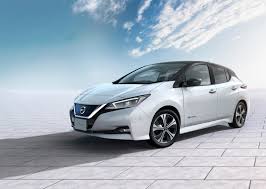
The Nissan Leaf Electric Car: Pioneering Sustainable Driving
The Nissan Leaf is a trailblazer in the world of electric vehicles, offering drivers a sustainable and eco-friendly option for their daily commute. Launched in 2010, the Nissan Leaf quickly gained popularity for its innovative design, impressive range, and commitment to reducing carbon emissions.
One of the key features of the Nissan Leaf is its all-electric drivetrain, which eliminates the need for traditional fossil fuels and reduces harmful greenhouse gas emissions. With zero tailpipe emissions, the Nissan Leaf is not only better for the environment but also helps drivers save money on fuel costs.
Equipped with advanced technologies such as regenerative braking and energy-efficient heating and cooling systems, the Nissan Leaf maximises energy efficiency and range, allowing drivers to travel further on a single charge. The latest models offer an extended range of over 200 miles, making them a practical choice for everyday use.
In addition to its environmental benefits, the Nissan Leaf also excels in terms of performance and comfort. Its smooth acceleration, quiet operation, and spacious interior make for a pleasant driving experience. With features such as smartphone integration, navigation systems, and advanced safety technologies, the Nissan Leaf offers both convenience and peace of mind on the road.
As more drivers embrace sustainable living and seek alternatives to traditional petrol or diesel vehicles, the Nissan Leaf stands out as a symbol of progress towards a greener future. With ongoing advancements in battery technology and charging infrastructure, electric vehicles like the Nissan Leaf are becoming increasingly accessible and practical for everyday use.
Whether you are passionate about environmental conservation or simply looking for a reliable and cost-effective mode of transportation, the Nissan Leaf offers a compelling solution that combines sustainability with style and performance. Join the electric revolution today with the innovative Nissan Leaf.
Top 5 FAQs About the Nissan LEAF: Battery Life, Range, and Cost
- How long do batteries last Nissan LEAF?
- Is Nissan LEAF 100% electric?
- How far can the Nissan Leaf go on electric?
- How long will a Nissan Leaf battery last?
- How much does a leaf electric car cost?
How long do batteries last Nissan LEAF?
The longevity of batteries in the Nissan Leaf electric vehicle is a common concern among potential buyers and current owners. On average, the batteries in a Nissan Leaf are designed to last approximately 8 to 10 years, or around 100,000 to 150,000 miles, before they may start to show signs of reduced capacity. However, it is essential to note that battery life can vary depending on various factors such as driving habits, maintenance practices, climate conditions, and charging patterns. Nissan offers a warranty on the battery pack for a certain number of years or miles to provide owners with peace of mind regarding battery performance and replacement costs. Regular maintenance and following best practices for charging can help extend the lifespan of the batteries in the Nissan Leaf, ensuring continued reliability and performance over the years.
Is Nissan LEAF 100% electric?
Yes, the Nissan Leaf is indeed 100% electric. As a pioneering electric vehicle, the Nissan Leaf operates solely on electricity, eliminating the need for petrol or diesel fuel. With zero tailpipe emissions and a fully electric drivetrain, the Nissan Leaf exemplifies Nissan’s commitment to sustainable and eco-friendly driving. Drivers can enjoy the benefits of a clean and efficient mode of transportation while contributing to reduced carbon emissions and environmental conservation. The Nissan Leaf’s all-electric design sets it apart as a leading choice for those seeking an environmentally conscious and forward-thinking driving experience.
How far can the Nissan Leaf go on electric?
One of the most frequently asked questions about the Nissan Leaf electric car is regarding its driving range on a single charge. The Nissan Leaf has made significant strides in battery technology over the years, with newer models offering an impressive range of over 200 miles on average. This extended range provides drivers with the confidence to tackle their daily commutes and errands without worrying about running out of charge. With advancements in energy efficiency and regenerative braking, the Nissan Leaf continues to push boundaries in sustainable driving by offering a practical and eco-friendly solution for modern motorists.
How long will a Nissan Leaf battery last?
The longevity of a Nissan Leaf battery is a commonly asked question among prospective electric vehicle owners. Nissan has designed the Leaf’s battery pack to be durable and reliable, with an average lifespan of around 8 to 10 years under normal driving conditions. Factors such as driving habits, climate, and maintenance practices can influence the battery’s longevity. Nissan provides a warranty for the Leaf’s battery, typically covering it for 8 years or 100,000 miles, ensuring peace of mind for owners. Regular maintenance and following recommended charging practices can help maximise the lifespan of the Nissan Leaf’s battery, allowing drivers to enjoy sustainable and efficient driving for years to come.
How much does a leaf electric car cost?
One of the most frequently asked questions about the Nissan Leaf electric car is regarding its cost. The price of a Nissan Leaf electric car can vary depending on factors such as the model year, trim level, optional features, and any available incentives or rebates. Generally, the starting price for a new Nissan Leaf ranges from around £27,000 to £35,000 in the UK market. It’s important for prospective buyers to consider not just the initial purchase price, but also long-term savings on fuel and maintenance costs that come with owning an electric vehicle like the Nissan Leaf.
